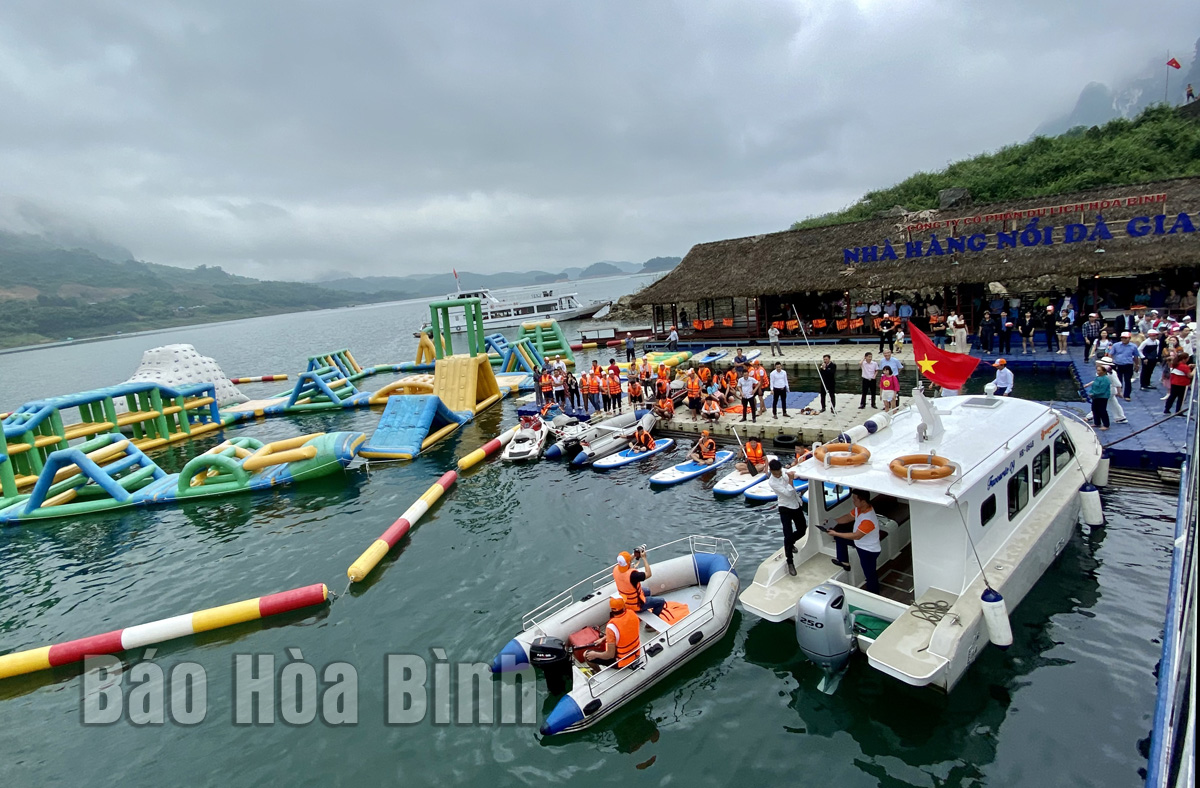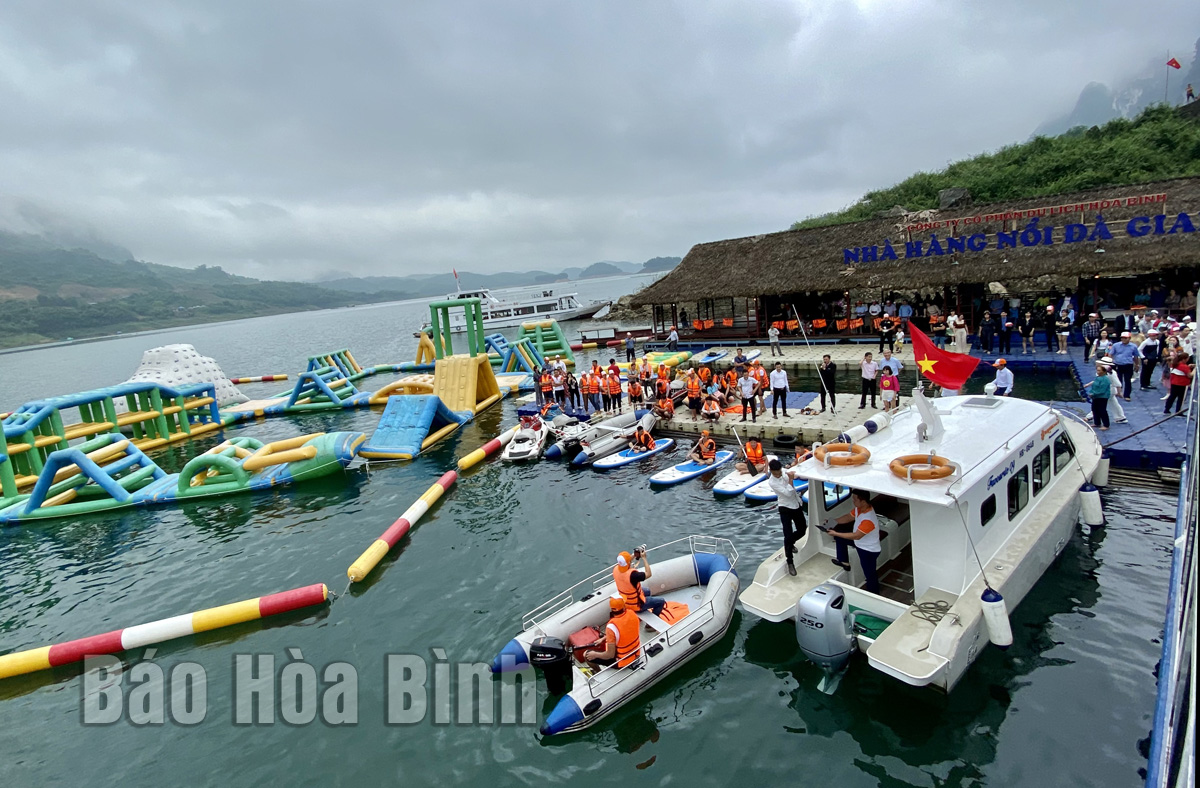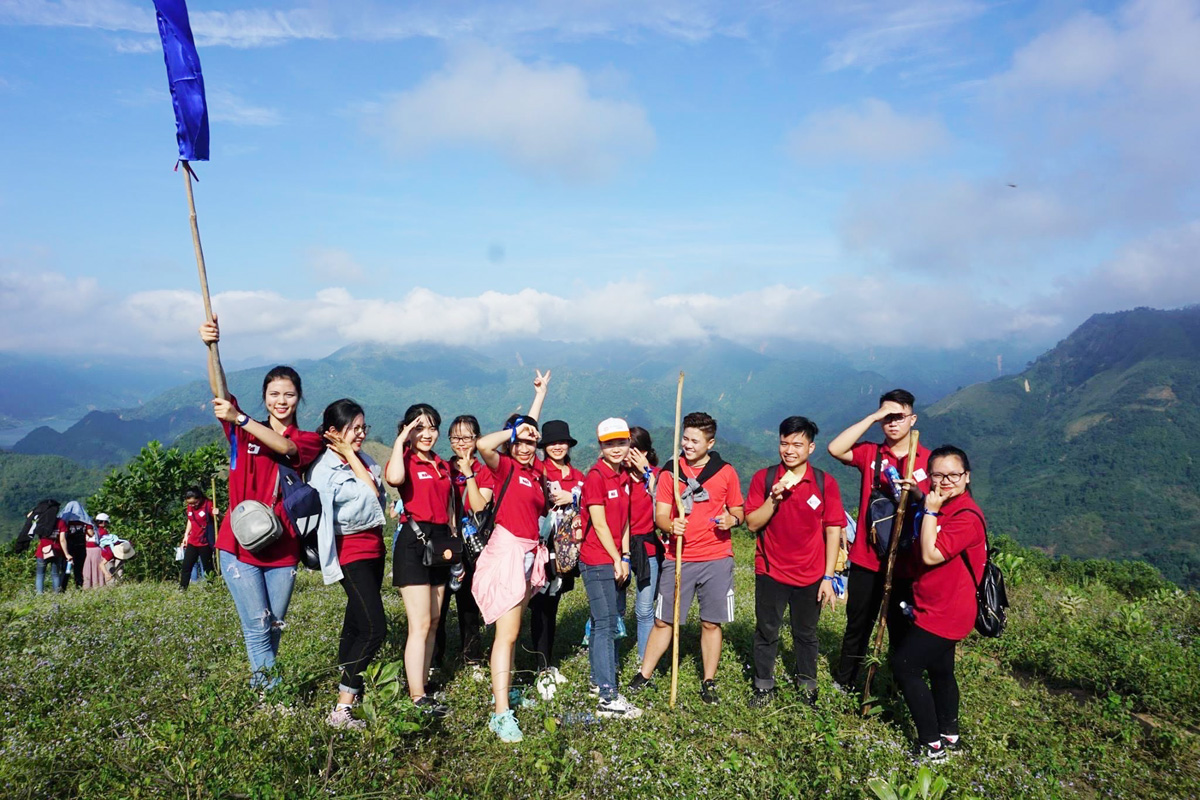
(HBO) – The living standards of people in the Hoa Binh Lake area have been improved, reflecting changes in tourism activities in Cao Phong, Mai Chau, Da Bac, and Tan Lac districts and Hoa Binh city.
Hoa Binh Tourism Investment JSC develops exploration tourism
products in the Hoa Binh Lake area.
Attractive tourism sites
Hoa Binh province has recently welcomed a
delegation of tourists from the US, the UK, Australia, and Norway. During their
two-way stay, the nearly 20 holidaymakers decided to explore the Hoa Binh Lake
area.
After the COVID-19 pandemic was brought under
control, domestic and foreign visitors have returned to resorts and tourism
villages, especially those in Mai Chau, Da Bac, and Tan Lac districts.
Apart from community-based tourism sites, there
are also high-end eco-tourism sites like Mai Chau Hideaway, Ba Khan Village
Resort and Dua (Coconut) Island.
Along with the waterway on the Da River that
runs through Hoa Binh, Son La, Dien Bien, and Lai Chau provinces, Hoa Binh has
opened routes for trekking and cycling along the river in Tan Lac, Mai Chau,
and Da Bac districts.
Other products like tours around Hoa Binh Lake,
spiritual one to Chua Thac Bo Temple, and Northwest tours by both waterways and
roads have also been launched.
Diverse, sustainable livelihoods
Da Bia hamlet in Tien Phong commune has got a
facelift thanks to the timely support of international organisations as well as
changes in the mindset of local residents.
The Action on Poverty (AOP) organisation has
guided locals to develop sustainable community-based tourism, with financial
support in the initial stage of infrastructure building.
All-level Party committees and authorities have
also encouraged and supported them in infrastructure and equipment.
As a result, Da Bia has been named in the
Vietnamese tourism map with its community-based tourism services. Local
agricultural products have also been promoted through tourists.
Tourists cruise tourism hamlets in Cao
Son and Tien Phong commune of Da Bac district as part of their tour around Hoa
Binh Lake
Meanwhile, Ngoi hamlet in Suoi Hoa commune, Tan
Lac district has been dubbed as the "heart” of Hoa Binh Lake tourism thanks to
programmes and services offered by the Hoa Binh Tourism Investment JSC,
including a floating restaurant on the Da River, a water entertainment system,
and community guest houses.
In 2019, the Hoa Binh Lake tourism area welcomed
550,000 holidaymakers, making up 17.7% of the total visitors to the province,
of whom 26,000 were foreigners. It earned 160 billion VND (6.4 million USD)
from tourism services and products.
Last year, the number of visitors reduced to
only about 150,000 due to COVID-19 and the revenue stood at 70 billion VND.
The site is expected to serve 400,000 tourists
this year and 500,000 in the coming years.
According to Deputy Director of the provincial
Department of Culture, Sports and Tourism, about 600 labourers are working in
the local tourism industry, mainly in community-based tourism/.
A diverse chain of eco-tourism and resort destinations concentrated in Hoa Binh city and the districts of Tan Lac, Da Bac, and Luong Son… Along with the launch of several key high-quality resort tourism projects, these developments have reshaped the landscape and enhanced the appeal of Hoa Binh as a travel destination.
Boasting diverse terrain, a mild climate, and rich natural resources, Cao Phong district is increasingly asserting its place on Vietnam’s tourism map, attracting both domestic and foreign visitors. The district is renowned for its stunning landscapes, majestic mountains, a crystal-clear hydropower lake, and the unique cultural identity of local ethnic groups.
With its pristine landscapes, unique cultural heritage of Muong ethnic minority, and an expanding range of visitor experiences, Tan Lac district of Hoa Binh has fast become a captivating destination for both domestic and international tourists.
Until now, Sung village in Cao Son commune, Da Bac district remains the only Dao ethnic community in Hoa Binh province to develop a community-based tourism model. Beyond its untouched natural landscapes, cultural identity serves as the cornerstone attraction for visitors.
Alongside the diverse cultural identities of the Kinh, Muong, Tay, Thai, Dao, and Mong ethnic people, Hoa Binh province is also renowned as the "capital" of the northwestern Vietnamese cuisine, offering unique and distinctive dishes. At festivals, during Lunar New Year (Tet), or on significant family or community occasions, special dishes are prepared, leaving a lasting impression on visitors.
A Phong Linh (Yellow Tabebuia) flower garden in Thang village, Thach Yen commune, Cao Phong district is currently in full bloom, drawing a large number of visitors.




